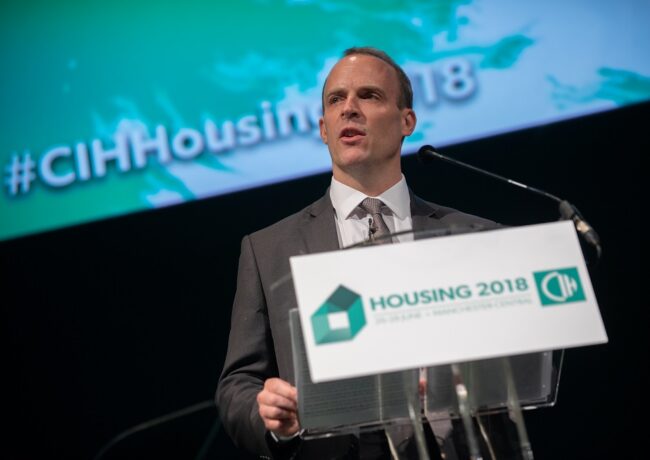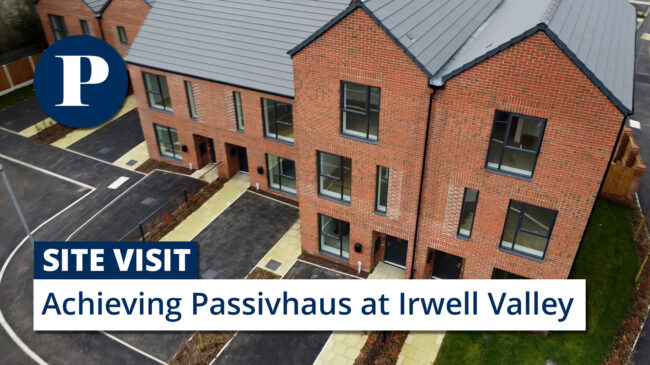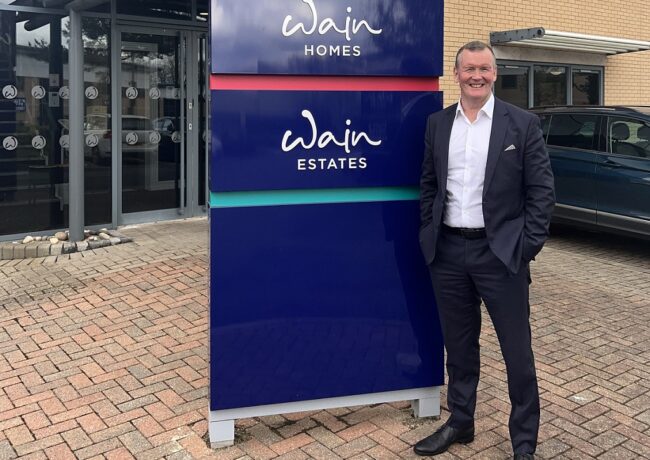Raab refutes Government limiting Northern ambition
Place North West met with the new incumbent of the housing minister role, to discuss the impact of objectively assessed housing need, the Government’s interventionist approach to Local Plans, and who should pay in the private sector for towers needing to be reclad in the aftermath of Grenfell.
Raab became housing minister in January, taking over from Alok Sharma, and becoming the sixteenth person to hold the position in just 20 years. He was a keynote speaker at the Chartered Institute of Housing conference, taking place in Manchester last week.
In his keynote address to the conference, Raab majored on points relevant to the social housing sector, pointing to the publication of the Government’s upcoming green paper to be published next month.
In the aftermath of the Grenfell fire tragedy, the impact of which is still unravelling within the public and private housing sectors alike, Raab repeatedly indicated the importance that perceptions of social housing tenants be changed, with the stereotype of “benefit scroungers” being unfounded and intolerable, and that communities in poorer areas should be given greater acknowledgement and voice.
He said: “Our social housing green paper, which we intend to publish next month, will set out our plans to ensure everyone in social housing gets fair and decent treatment.
“We will look to strengthen the role of the regulator, to give it more teeth. But ultimately, what we really want to do is empower residents as consumers, with clearer expectations of the treatment and service they are entitled to, and with the voice and ability to meaningfully hold landlords to account.”
Speaking to Raab after the conference, Place North West asked whether the Government risked limiting the North’s ambition by its changes to objectively assessed housing need, which has upped housing build targets in the South, but in some areas has lowered targets in parts of the North. Raab justified the Government’s approach by stating that “the homes follow the jobs”.
“We’re not trying to send a negative message, but this is about two strands of Government policy; we want to see balanced economic growth with the Midlands Engine and Northern Powerhouse, and some of the stuff going on in west of country, for instance Bristol and tech is tremendously exciting.
“The truth is, the homes will follow the jobs and the economic activity. You’re not going to build the homes and expect the economic activity to follow it.
“The objectively assessed need is that; it’s trying to take a look at where the demand for housing is, and make sure, to the extent that the Government is involved, that we focus on the areas with the highest demand and the greatest need.
“Places like Manchester, Liverpool, Bath, Bristol, aside from London, are huge growth areas, and the targets will follow that.”
In March, then communities secretary Sajid Javid sent out letters to various local authorities warning of a possible intervention from Government, should they fail to implement a Local Plan. In the North West, Wirral remains the only council under such scrutiny.
James Brokenshire has since replaced Javid at the head of the department for communities & local government, however Raab stressed that the department hadn’t veered from its interventionist approach: “What we’re trying to do with the Local Plan process is broaden the tools so that local authorities have greater choice and flexibility to build the homes that their communities really need. For instance, local decisions on density, and permitted development rights, to back up changes coming in the NPPF. We want extra tools in the planning toolbox for local authorities, and we really want local authorities to get their plans in place and have as many means as possible to build these homes.
“What we can’t have, with the kind of challenges to housebuilding that we have in this country, is let local authorities year on year fail to put a plan together, and fail to deliver the supply of new homes needed. So absolutely, we are going to intervene if they don’t get their act together.”
When asked by Place North West about the ongoing disputes in the private sector between leaseholders and freeholders of tower blocks over who should pay for the recladding of properties found to fall short of fire-retardent standards in the wake of Grenfell, Raab was cautious over the Government’s position.
“I have to be careful about the private contractual arrangements that were made, including the legal responsibilities that underpin those relationships. But it’s clear that in the cases where a property was built in contravention with building regulations, then it ought to be the developer or owner who takes responsibility for it. But I can’t arbitrate the legal relationships, that would be the wrong thing to do.”




